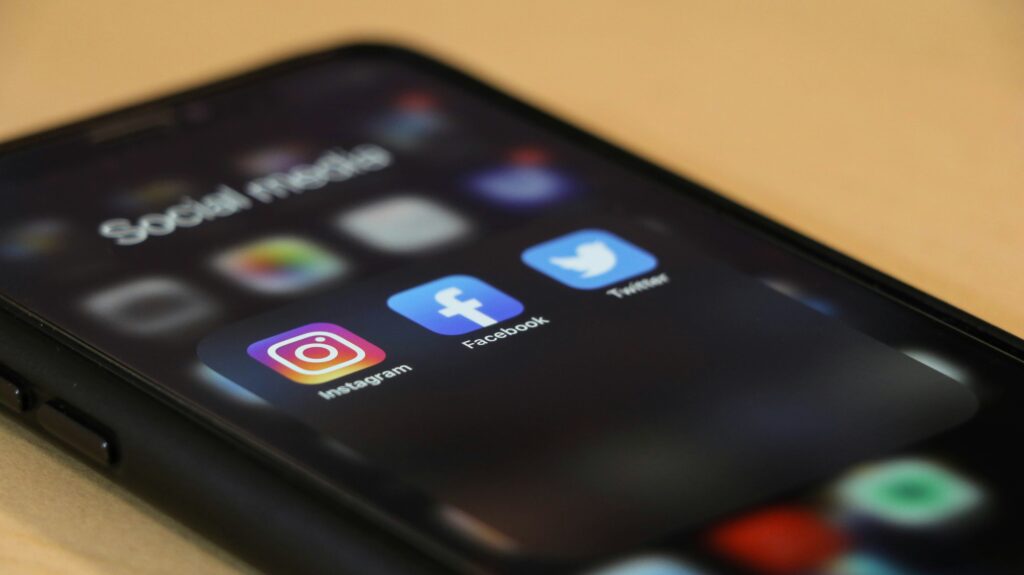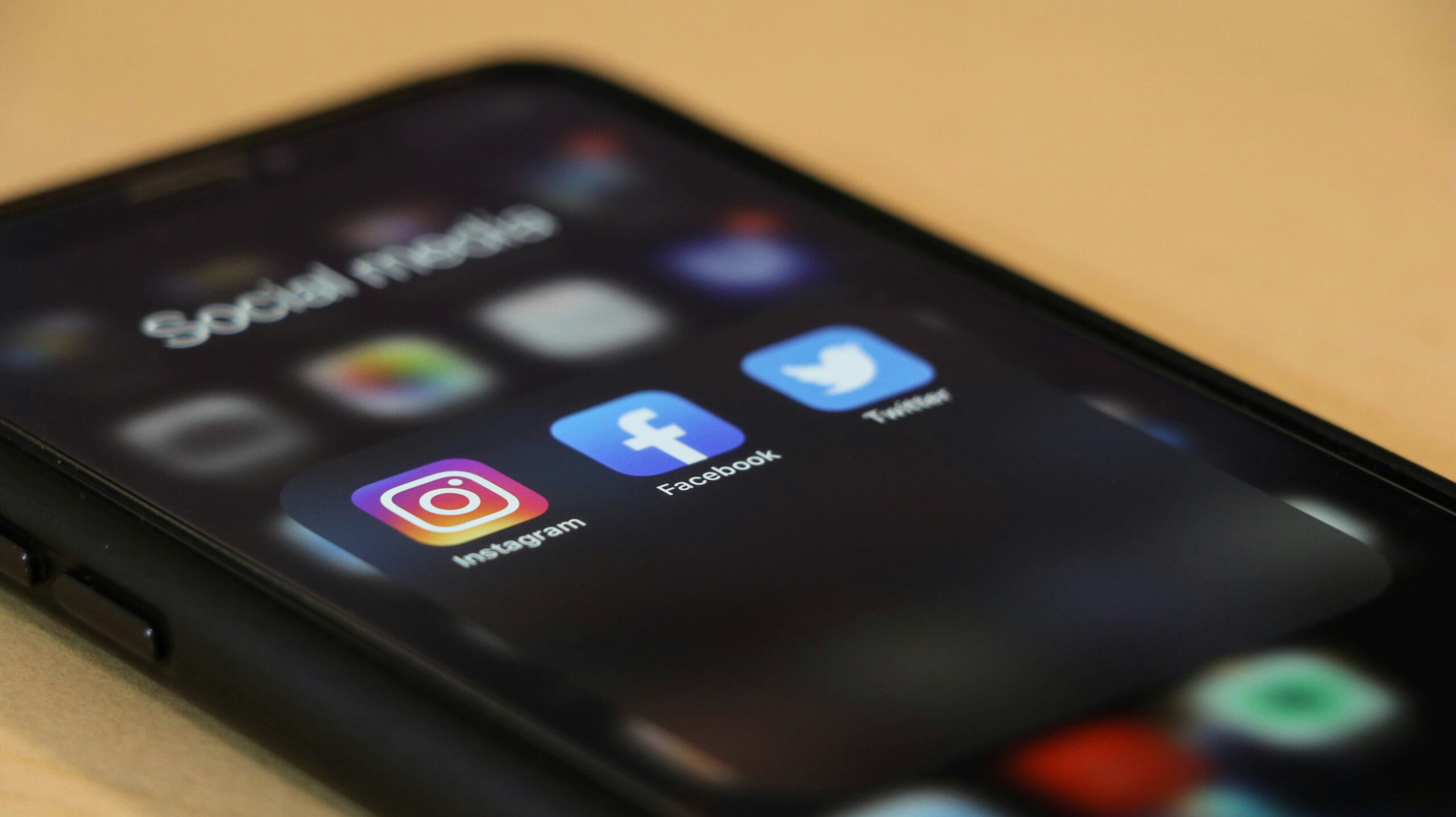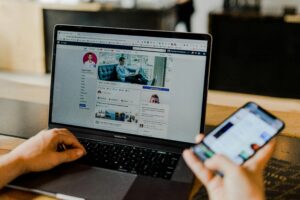Social media has become a huge part of modern life. Whether it’s scrolling through Instagram, catching up with friends on Facebook, or watching the latest trends on TikTok, most of us spend hours every day online. While social media has revolutionised how we communicate, it’s also sparked endless debates about its impact on mental health. Is it a tool for connection and support, or does it fuel anxiety and self-doubt?
Let’s dive deep into social media and its effects on mental health:
- The positive effects of social media
- The negative effects of social media
- How to use social media mindfully
- It’s all about the balance with social media and mental health
The answer, as with most things, isn’t black and white. Social media can be both a friend and a foe: It all depends on how we use it.

The positive effects of social media
Social media helps people stay connected with friends, family, and support groups, reducing feelings of isolation and fostering a sense of belonging. It also plays a crucial role in raising awareness about mental health, breaking stigma, and providing access to valuable resources and communities.
Social media is the ultimate equalizer. It gives a voice and a platform to anyone willing to engage. — Amy Jo Martin
Staying connected
One of the biggest benefits of social media is how easily it allows us to stay in touch with family and friends, no matter where they are in the world. Whether it’s messaging a friend, video calling a loved one, or sharing updates, social media helps us feel less isolated and more connected.
Mental health support groups
For those struggling with mental health, social media can be a lifeline. There are countless support groups, forums, and pages where people share their experiences and advice. Platforms like Reddit, Facebook, and Twitter host mental health communities that provide empathy, encouragement, and understanding. Knowing you’re not alone can make a huge difference in coping with anxiety, depression, or other mental health challenges.
Raising awareness and breaking stigma
Social media has played a big role in normalising mental health conversations. Influencers, celebrities, and everyday users share their personal struggles, making it easier for others to talk about their own mental well-being. Campaigns like #MentalHealthAwareness and #ItsOkayToNotBeOkay encourage open discussions and help break the stigma surrounding mental health issues.
The negative effects of social media
Constant exposure to curated highlights of others’ lives can lead to social comparison, low self-esteem, and anxiety. Additionally, cyberbullying, online negativity, and screen addiction can contribute to increased stress, poor sleep, and a decline in overall mental well-being.
Social comparison and low self-esteem
While social media connects us, it can also make us feel inadequate. It’s easy to compare our everyday reality to the highlight reels of influencers and friends. Seeing others on exotic holidays, achieving career milestones, or looking flawless in every selfie can lead to self-doubt, anxiety, and body image issues.
Cyberbullying and online negativity
Unfortunately, social media isn’t always a kind place. Cyberbullying and negative comments can deeply affect mental health, leading to stress, anxiety, and even depression. Unlike face-to-face bullying, online harassment can feel inescapable since it follows people everywhere through their phones.
Screen addiction and mental overload
Endless scrolling can become an addiction. Doomscrolling, or compulsively consuming negative news, can increase stress and anxiety. Constant notifications and social media updates can also make it hard to switch off, affecting sleep, focus, and productivity.
How to use social media mindfully
To use social media mindfully, set time limits, take regular digital detoxes, and curate a positive feed by following uplifting and inspiring content while unfollowing accounts that negatively impact your well-being. Prioritising real-life connections, engaging intentionally, and avoiding mindless scrolling can help maintain a healthy balance between online and offline life.
Set time limits
Spending too much time online can negatively impact mental health. Try setting daily limits on social media apps or using features like Screen Time (iPhone) or Digital Wellbeing (Android) to track usage. Even small breaks can help reduce stress and improve focus.
Curate a positive feed
Your social media feed should uplift, not drain you. Unfollow accounts that make you feel bad about yourself and follow pages that inspire, educate, and bring joy. Surrounding yourself with positive, real, and relatable content can make a big difference in mental well-being.
Take regular digital detoxes
A social media detox doesn’t mean quitting completely. It simply means stepping away from screens for a while. Try:
- No-phone mornings (avoid scrolling first thing after waking up).
- Screen-free evenings (turn off social media before bed for better sleep).
- Weekend detoxes (go offline for a day or two to reset and recharge).
It’s all about the balance with social media and mental health
Social media isn’t inherently good or bad: It’s how we use it that matters. It can be a great tool for connection and support, but it also has the potential to harm mental health if not used mindfully. By setting boundaries, following positive content, and taking breaks when needed, we can enjoy the benefits of social media without the negative effects. Balance is key—so scroll wisely and take care of your mental well-being!









